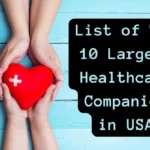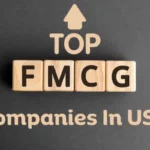Many of the pharmaceutical companies in the United States were founded as early as the 19th century, and they have a long and prosperous history. Pfizer, Johnson & Johnson, and Merck are a few of the most well-known pharmaceutical firms with headquarters in the United States as of 2023.
Pharmaceutical Companies In USA – List of Top Pharmaceutical Companies In USA

These businesses are in charge of manufacturing a wide variety of products, including both prescription and over-the-counter medications. In order to bring new and improved treatments to market, many of these corporations employ thousands of employees and engage in research and development efforts. The US pharmaceutical business is expected to be worth $440 billion and employ over 3 million people by 2023. Here are the top 10 pharmaceutical companies in the US.
Pfizer
A global pharmaceutical company with its headquarters in New York City is Pfizer. With more than 180,000 workers, operations in more than 100 countries, and sales of its medicines in more than 190 countries, it is one of the largest research-based biopharmaceutical firms in the world.
Pfizer creates drugs and vaccines that are used to treat a variety of ailments, from widespread ailments like colds and the flu to uncommon but serious illnesses like cancer and Alzheimer’s. Pfizer also creates medicines to address conditions like HIV, malaria, and tuberculosis.
Some of the most popular medications in the world, such as Lipitor, Viagra, and Lyrica, were developed by Pfizer.
Merck & Co.
A global leader in healthcare, Merck & Co. is headquartered in Kenilworth, New Jersey. Merck was established in 1891 as the country’s first national pharmaceutical company and has since developed into a major player in the worldwide healthcare industry. The business specializes in offering clients worldwide cutting-edge drugs, vaccines, and other health-related items.
Merck employs more than 100,000 people worldwide and has operations in more than 140 nations. The primary goals of Merck’s research and development efforts are to identify cures and safeguards against the most serious health problems in the world. Many different medical disorders, including cancer, Alzheimer’s disease, heart disease, and infectious diseases, are treated and prevented with the use of Merck’s medications.
Johnson & Johnson
Founded in 1886, Johnson & Johnson is a multinational healthcare conglomerate. It produces and markets pharmaceuticals, medical equipment, and consumer healthcare items. With its corporate headquarters in New Brunswick, New Jersey, the corporation has operations in more than 60 nations worldwide. One of the biggest businesses in the world, Johnson & Johnson with over 130,000 workers and annual sales of over $82 billion.
Consumer healthcare goods made by Johnson & Johnson include those for nutrition, wound treatment, skincare, and newborn care. In addition to other retail locations, pharmacies, and supermarkets sell its consumer healthcare items.
Novartis
In 1996, the international pharmaceutical firm Novartis was established in Switzerland. The business focuses on doing research and creating cutting-edge drugs and medical equipment in addition to offering healthcare solutions through partnerships with medical and health professionals and other life science organizations. Novartis is based in Basel, Switzerland, and employs more than 130,000 people globally.
One of the biggest pharmaceutical firms in the world, Novartis was third in sales in 2019.
Sanofi SA
Aventis and Sanofi-Synthélabo SNCS merged to form Sanofi SA, a French global pharmaceutical firm, in 2004. The business has activities all over the world and its headquarters are in Paris, France. The business, which employs about 20,000 people, is among the biggest pharmaceutical corporations in the world and is well-known here.
More than 100 nations can purchase Sanofi’s goods, which include well-known names including Allegra, Lantus, Ambien, and Taxotere. The organization has about 3,000 people who are solely focused on research and development. By 2022, it’s projected to bring in 34 billion dollars in income.
Roche Group
A multinational healthcare corporation with operations in more than 100 nations is The Roche Group. It was established in Basel, Switzerland, in 1896, and is currently among the biggest pharmaceutical corporations on the planet. The business specializes in the discovery, production, and marketing of pharmaceuticals, diagnostics, and medical equipment.
It offers a wide range of goods that are employed in the treatment of numerous illnesses, such as cancer, hepatitis, HIV/AIDS, arthritis, diabetes,and unusual genetic abnormalities. Innovation, sustainability, and corporate social responsibility are all priorities for Roche.
Gilead Sciences
California’s Foster City is home to the biopharmaceutical business Gilead Sciences. The company, which was established in 1987, focuses on cardiovascular disorders, cancer, respiratory and inflammatory diseases, liver diseases, and HIV/AIDS. As a pioneer in biotechnology, Gilead has created cutting-edge therapeutic treatments for people with life-threatening illnesses.
The medicines of Gilead are sold in more than 100 nations and are supported by a robust scientific staff and years of study. The company, especially its game-changing medicine Sovaldi, has been at the forefront of the creation and application of innovative antiviral treatments for HIV/AIDS. Harvoni and Viread are two further Gilead medications that have achieved success.
AbbVie
When Abbott Laboratories divided into two businesses in 2013, the result was the creation of AbbVie, a multinational, research-based biopharmaceutical corporation. AbbVie concentrates on creating cutting-edge treatments in disciplines like immunology, cancer, and neuroscience.
The business employs more than 29,000 people worldwide and runs operations in more than 175 nations. The goal of AbbVie is to find, create, and distribute cutting-edge medications that enable patients to live better lives. Humira, the top medication for autoimmune conditions like rheumatoid arthritis and Crohn’s disease, Venclexta, the first treatment for Imbruvica and acute myeloid leukemia, the only medication for multiple sorts of blood cancers, are all products offered by AbbVie.
Bristol-Myers Squibb
American pharmaceutical business Bristol-Myers Squibb has its headquarters in New York City. Bristol-Myers Squibb, a company that was founded in 1887, focuses in the study, creation, and marketing of medications for the treatment of various ailments.
With operations in more than 150 countries, it is one of the biggest biopharmaceutical businesses in the world. The company produces a wide variety of medications to treat issues such as cancer, heart disease, diabetes, immune system disorders, infectious diseases, respiratory problems, and neurological disorders. In North America, Europe, Asia, and Latin America, it has distribution centers.
AstraZeneca
Cambridge, UK-based AstraZeneca is a multinational pharmaceutical and biopharmaceutical firm with British and Swedish roots. It was created in 1999 as a result of the union of the Swedish company Astra AB with the British company Zeneca Group.
The business creates, produces, and sells agrochemicals, specialty chemicals, and prescription and over-the-counter drugs for human and animal health. With operations in over 100 nations and sales of its goods in over 180 nations, AstraZeneca is present all over the world.
Cardiovascular, gastrointestinal, infectious, neurology and cancer are some of its key focus areas. With yearly sales of over $35 billion USD as of 2019, AstraZeneca ranked as the sixth-largest pharmaceutical firm in the world.
The business makes significant investments in R&D, with an annual R&D budget exceeding $7 billion. Its research initiatives are concentrated on finding and creating cutting-edge treatments for critical ailments.
The pharmaceutical sector in the US is predicted to be valued more than $500 billion in 2023. Merck, Pfizer, Johnson & Johnson, Novartis, and AbbVie are significant participants. One of the most significant marketplaces for pharmaceutical businesses, the US market represents roughly 40% of global pharmaceutical sales.
Consumer and governmental pressure on drug corporations to lower costs and broaden access to pharmaceuticals have intensified recently.







